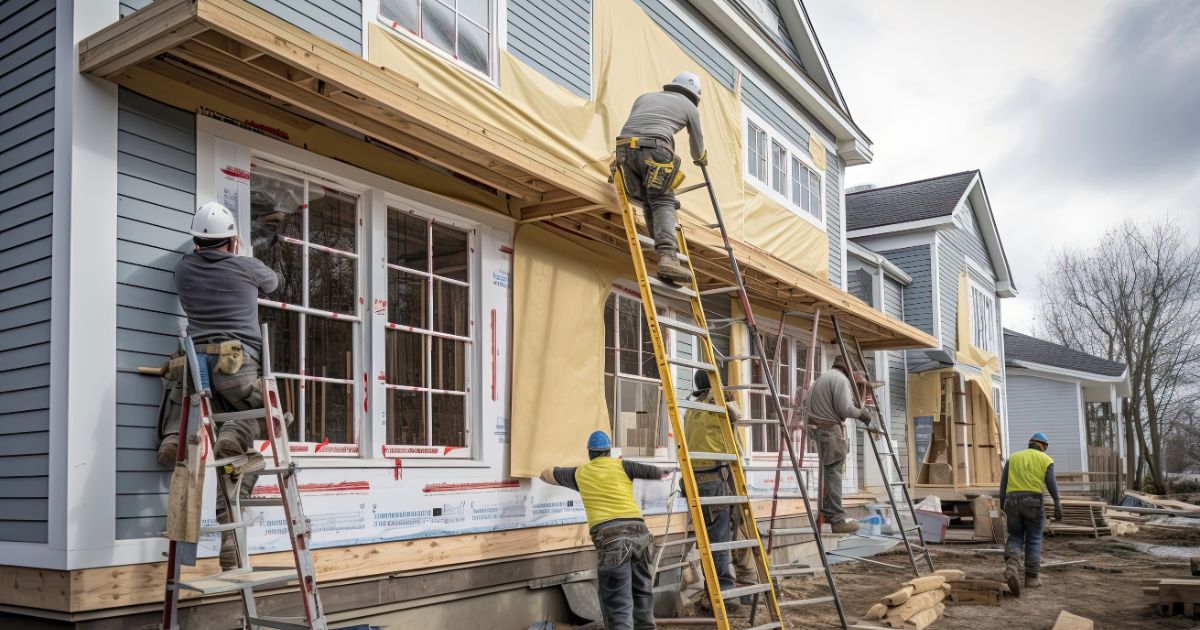Preparing a budget for hiring a siding contractor is a crucial step that can significantly influence the overall success of your home renovation project. Whether replacing old siding or installing new siding for aesthetic and functional improvements, understanding the costs involved will help you make informed decisions. Budgeting requires carefully evaluating various factors, including material choices, labor costs, and additional expenses that may arise during the project. We will explore the essential steps to prepare your budget effectively, ensuring you can manage your finances while achieving the desired outcome for your home’s exterior.
Understanding Siding Costs: Materials and Labor
One of the most significant components of your siding budget will be the cost of materials. Different types of siding materials come with varying prices, which can substantially impact your overall budget. Common options include vinyl, wood, fiber cement, and metal siding, each offering distinct benefits and costs. Vinyl siding is one of the more affordable options, requiring less maintenance over time. Wood siding, while beautiful, can be pricier and demands regular upkeep to prevent rot and decay. Fiber cement offers durability and a wood-like appearance but comes with a higher initial cost. Additionally, metal siding is gaining popularity for its longevity and low maintenance requirements.
Labor costs are another crucial consideration when budgeting for siding installation. The price of labor can vary widely based on your geographic location, the complexity of the installation, and the contractor’s experience. Generally, labor costs may account for 30% to 50% of the total siding project cost. It is essential to obtain multiple quotes from various contractors to get a clear picture of the labor costs in your area. This information will help you assess whether the quotes align with your budget and expectations. By carefully considering materials and labor costs, you can establish a solid foundation for your budget and avoid unexpected financial strains later on.
Additional Costs to Consider: Permits, Disposal, and Repairs
When preparing your budget, you must factor in additional costs that might take time to apparent. For instance, permits may be required for siding installation, especially if you live in an area with strict building codes. Checking with your local authorities about the need for permits will help you understand the associated costs and avoid fines for non-compliance.
Another aspect to consider is the disposal of old siding. If you replace existing siding, you may incur additional costs for removing and disposing of the old materials. Some contractors may include this in their quotes, while others may charge separately for this service. Understanding the disposal fees can help you accurately assess the total project costs.
Moreover, if your home has underlying damage or issues that require repairs before installing new siding, this could lead to unexpected expenses. Conducting a thorough inspection of your home’s exterior before hiring a contractor is advisable. Addressing any necessary repairs before installing siding can help avoid higher costs later. By anticipating these additional costs, you can create a more comprehensive budget that minimizes surprises and ensures a smoother project execution.
Setting Realistic Expectations: Prioritize Your Needs
When preparing your budget for hiring a siding contractor in Portland, OR, it’s important to prioritize your needs and set realistic expectations. Begin by identifying the primary reasons for the siding project. Are you looking to enhance your home’s curb appeal, increase energy efficiency, or protect against moisture and pests? Understanding your primary goals will help you make informed decisions regarding material choices and design options, enabling you to allocate your budget effectively.
Once you have determined your priorities, consider developing a tiered budgeting approach. This involves creating a core budget for the siding project’s essential elements while allowing for optional upgrades or additional features. For instance, if your primary goal is to improve energy efficiency, investing in high-quality insulated siding may be a priority. However, if aesthetics are also important to you, you may consider allocating a portion of your budget for decorative trim or a specific color that complements your home’s design. By structuring your budget this way, you can ensure that essential needs are met while leaving room for enhancements that align with your vision.
Additionally, take the time to research the market prices for various siding materials and installation services. Being informed about industry standards can help you assess whether the quotes you receive are reasonable. If a contractor provides a quote that significantly exceeds your budget, you can negotiate or seek alternatives that fit your financial plan. By being clear about your priorities and conducting thorough research, you can create a budget that reflects your needs without overspending.
Preparing your budget for hiring a siding contractor requires thorough planning and consideration of multiple factors. By understanding the costs associated with materials and labor, factoring in additional expenses such as permits and repairs, prioritizing your needs, and researching contractors, you can establish a budget that aligns with your financial capabilities while meeting your home improvement goals.
Ultimately, an effective budget provides clarity for your project and enhances the likelihood of a successful siding installation that transforms your home’s exterior. With your budget in place, you can confidently move forward, knowing you have made informed decisions that will lead to a satisfying outcome for your home renovation project.
Keep an eye for more latest news & updates on Gossips!




